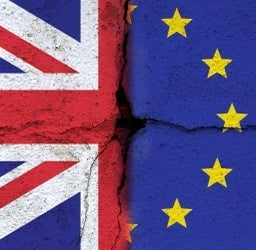PUBLIC OPINION in Britain has long since turned against the view that Brexit was a good idea. According to YouGov, a pollster, 57% of voters now believe that it was a mistake to leave the European Union, the highest share since the referendum in June 2016. Only 32% think it was the right decision (see chart 1). And a new poll from YouGov finds that, for the first time since the referendum, a narrow majority of 51% say that they would vote to rejoin the EU.
There are several reasons why opinion has turned so decisively. Disillusion over unfulfilled promises made by Brexit campaigners in 2016 is another. The economy has not performed strongly since 2016 and the cost of living has shot up. The NHS, to which Brexiteers pledged more money, seems more troubled than ever. And net migration, which many leavers had promised would fall after Brexit, is running at record levels. It is little wonder that as many as one-fifth of those who voted to leave say they have now changed their minds.
The unpopularity of the Conservative government may be yet another factor. For a long period after Boris Johnson’s landslide victory in the December 2019 election, public opinion was strongly supportive of his party, which voters closely identified with Brexit. YouGov’s polling in May shows how much the vote to leave has since hurt the party that championed it: of the 37% of leave voters who said Brexit had been a failure, 75% of leavers blamed it on the Tories (see chart 2). Today Sir Keir Starmer’s Labour Party is on average almost 20 points ahead of Rishi Sunak’s Conservatives in opinion polls, making it probable that the general election likely to be held next year will produce a change of government. On July 20th the governing party may lose three by-elections—all in areas that voted to leave. This does not point to an imminent decision to reopen the issue of Brexit, let alone to seek to rejoin the EU. Far from considering rejoining, Sir Keir has pledged to stick to Mr Johnson’s decisions to leave both the EU’s single market and its customs union. Instead, he talks only of making Brexit work better by aligning more closely with EU food-safety and other rules and seeking new deals in such areas as security and defence, mobility of labour and co-operation over scientific research.
The swing of public opinion away from backing Brexit should make it easier to mend fences with the EU and to strive to form a closer relationship with the bloc. But for several more years at least, it is unlikely to lead to any serious attempt to reverse the decision taken in 2016. ■


Given how much of a clusterfuck this has been, 57% is a surprisingly small part of the population.